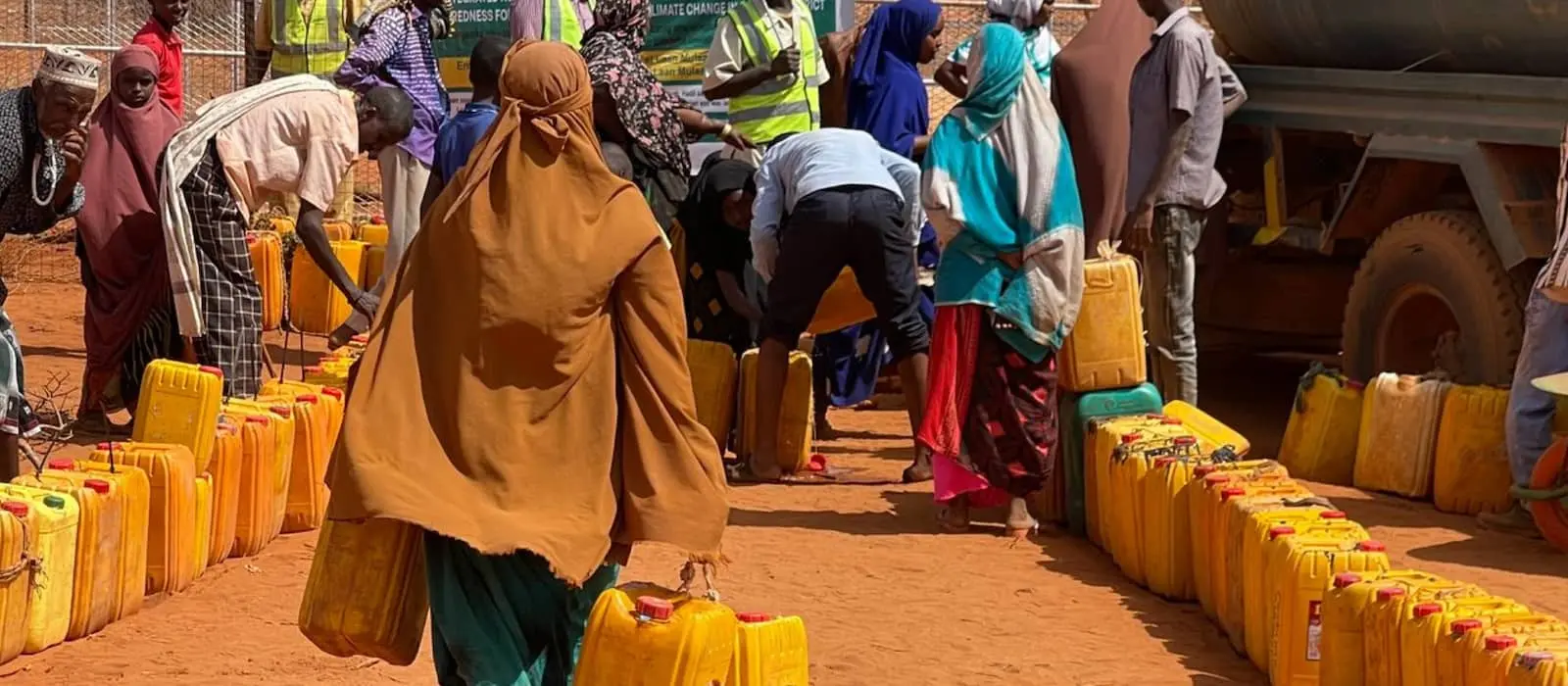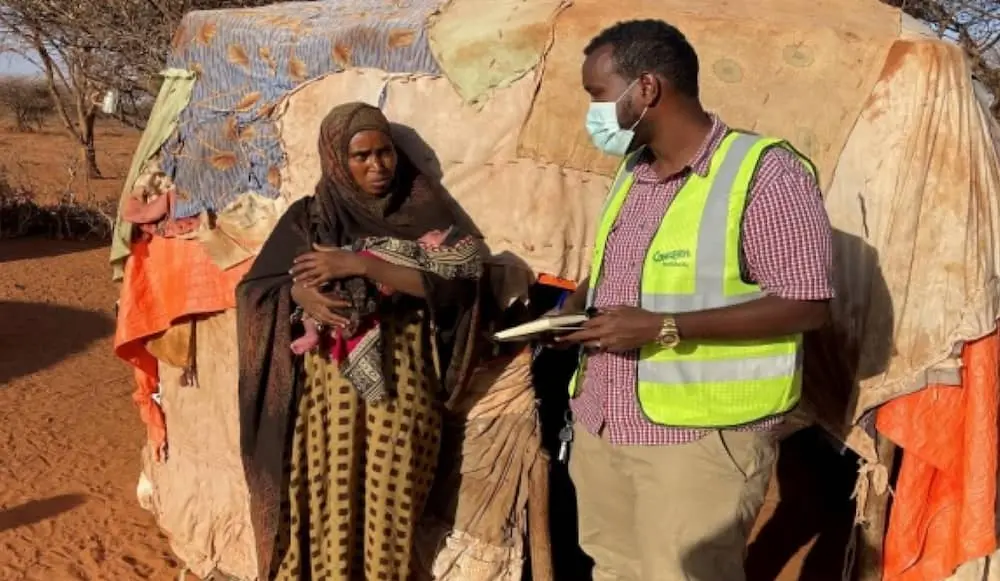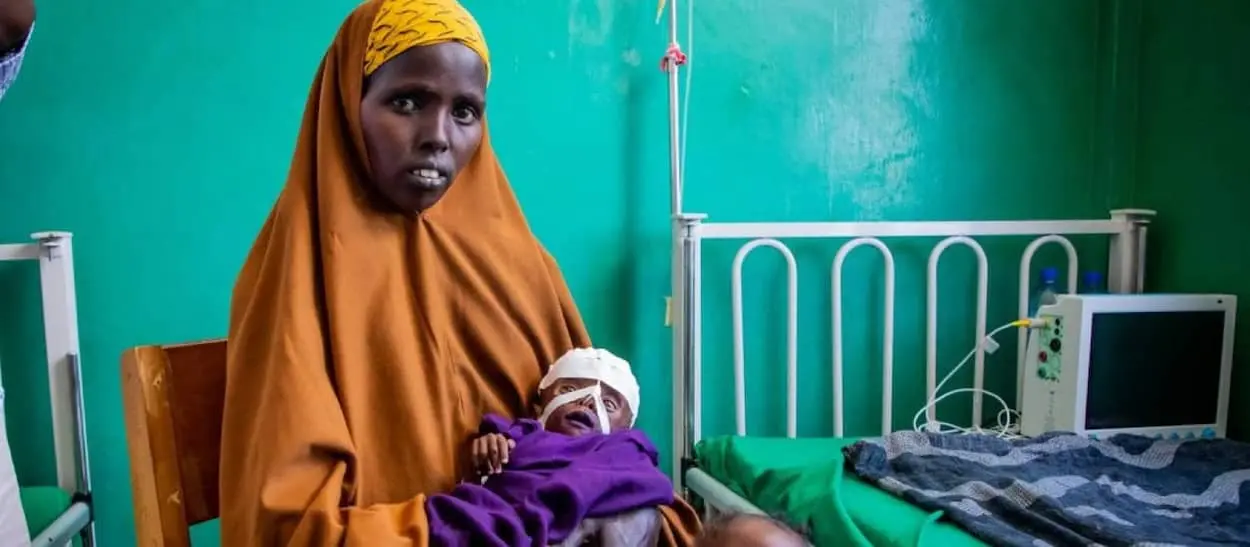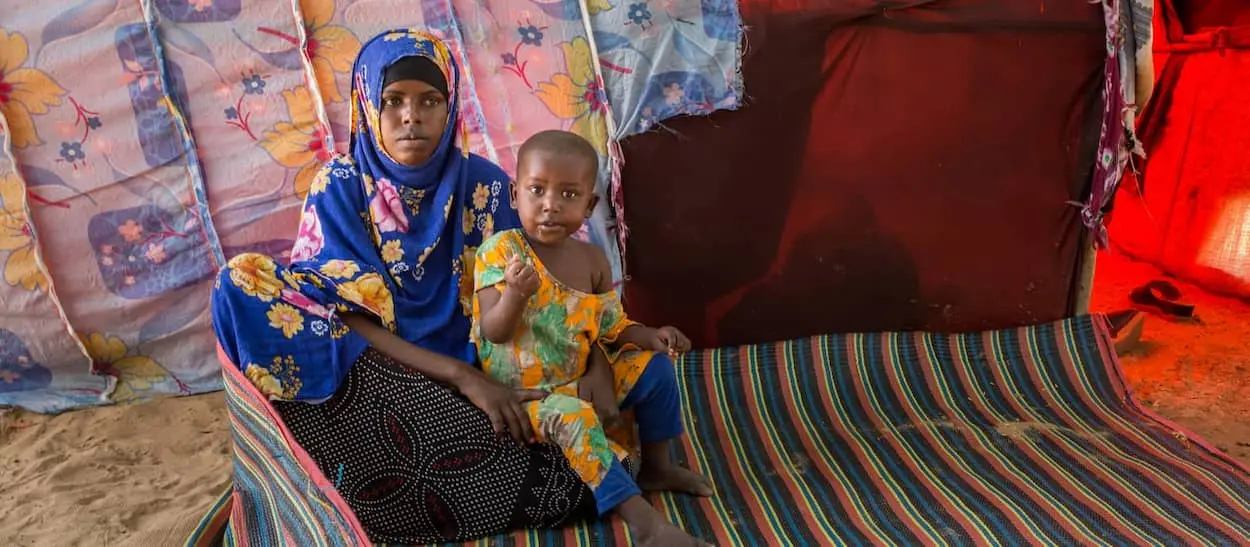
Lives Could Be Lost in Somalia Without Urgent Action Warns Concern Worldwide
The world’s hungriest country is suffering its worst drought in 40 years with little or no rain since mid-2020.
The world’s hungriest country, Somalia, is in urgent need of support to prevent lives being lost as it suffers its worst drought in four decades.
There are fears of another major humanitarian catastrophe in Somalia, ranked last in the 2021 Global Hunger Index, unless world governments increase their response for the 4.3 million Somalis currently affected by drought.
An estimated 258,000 people died during the East African nation’s last famine in July, 2011, which was declared after two failed rainy seasons and a prolonged drought.
“We cannot and should not wait until a child dies from hunger to respond to this crisis,” said Concern’s Horn of Africa Regional Director, Amina Abdulla.
“People have no water or food after their crops and livestock were destroyed by this drought caused by a third consecutive below-average rainfall season since late 2020.
“An estimated 554,000 people have abandoned their homes in search of water, food and pasture.
“A fourth failed rainy season this April could be disastrous for millions of people in Somalia and right across the Horn of Africa.
“The UN is seeking US$1.5 billion (€1.3 billion) to provide humanitarian assistance in Somalia, but they have so far received less than five percent of this.
“The world prevented another famine from being declared in Somalia in 2016 after warnings and appeals were issued for the 6.2 million people who needed support then and this can be done again.
“We need to save as many lives as we can and show Somalia that the world does care.”
Concern’s drought-specific response in Somalia has been underway since November 2021 and includes water trucking, emergency cash distributions to vulnerable and affected families and increasing the number of mobile medical teams they are operating in the most affected areas.
This assistance has been made possible with funds from Irish Aid, ECHO (the European Union’s emergency response organisation), the German government and UK Aid, along with an allocation from Concern’s own emergency reserves. The charity said much more can be done with more donations.
There are also risks of major disease outbreaks in Somalia with measles already confirmed in a number of locations due to severe water shortages and inadequate access to sanitation and hygiene facilities.
Thousands of children have dropped out of school as parents can no longer afford to pay fees while malnutrition rates are very high in drought-affected areas.
The Famine Early Warning Systems Network (FEWS NET), which was created by the US Agency for International Development in 1985, said long-range forecasts for the April to June 2022 annual Gu monsoon rains suggest “elevated chances of a fourth below-average rainfall season.”
They said Somalia last experienced a four-season drought in 2016/2017, which led to severe acute food insecurity.
FEWS NET, which provides analysis to governments and relief agencies, also said that a scale-up of humanitarian food assistance is urgently needed to save lives and livelihoods.
Pregnant and Worried About Availability of Water

A young Somali mother received clean water as part of an aid distribution from the Irish charity Concern Worldwide just in time for the birth of her seventh child.
Samira, from Togdheer, an eastern region of Somaliland, was one of the few people in her community who couldn’t leave in search of water because she was heavily pregnant. “I was worried about water,” she said.
“I couldn’t leave the village as I was incapable of walking long distances or travelling in a vehicle with the poor condition of the road.”
Samira was in the last days of her pregnancy when Concern started trucking water to her community – which was to benefit 810 households and funded by the German government.
“Thanks to Concern Worldwide, in the night of the delivery, we had some water that the midwife can wash her hands and some water that we can cook for the rest of the children and the guest who came to assist me,” said Samira.
Samira gave birth to a healthy baby girl on January 25, but she is anxious about what the future will hold once the water-trucking stops.
The ongoing drought in the Horn of Africa region is its worst since 1981 with 13 million people facing severe hunger and water shortages.
It is estimated that more than 1.4 million animals have died in Kenya alone because of the ongoing drought.
In Ethiopia, the drought is affecting an estimated 6.8 million people and it is feared that if the fourth rainy season also fails this March and April, that the crisis will reach even greater levels.
Connect With Us
If you would like to speak to a member of our team about any aspect of our work, please get in touch with us using the details below.
- Contact Candance

Candance Patel-Taylor
Vice President of Communications



